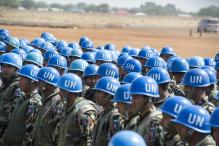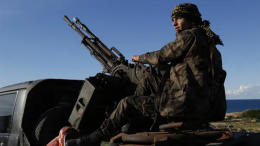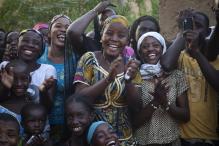Today, peacemakers, peacekeepers, and peacebuilders operate in highly complex and fluid strategic environments where groups with clear criminal agendas have a major impact on conflict dynamics, peace processes, and postwar transitions. In recent years, there has been an increasing international recognition of the close connections between organized crime and conflict. This has often included a call to integrate awareness of organized crime into conflict prevention strategies, conflict analysis, mission assessment, and planning. The objective of this paper, commissioned by the UN Department of Political Affairs (DPA), is to help identify good practices from across several organizations outside the UN system, on what it means to incorporate sensitivity to organized crime into conflict prevention and peacemaking activities.
Why should peacemakers pay attention to organized crime?
While traditional perceptions have tended to treat criminal and political actors as entirely separate, emerging research and evidence from a variety of settings suggest that this hard and fast distinction is overstated. Contemporary conflicts, from Colombia to Mali, Libya, and the Democratic Republic of the Congo (DRC), attest to the porous boundaries between state, non-state armed groups, and criminal groups, and between political and criminal motivations and strategies. Shifting alliances over the control of criminal rents have contributed to the fragmentation of conflicts and conflict parties, potentially making conflicts longer, deadlier, and harder to resolve. This complicates both conflict resolution efforts and post-conflict recovery efforts, which are vulnerable to the emergence of large-scale corruption networks, and to political and regulatory capture.
Recognizing that organized crime is not always separated from but sometimes intertwined with politics has serious implications for the work of actors such as DPA. This paper argues that where criminal agendas are present, conflict-related work requires a focus not just on formal politics but also on informal and illicit political economy.
How can DPA “crime-proof” its activities?
Through an in-depth survey of the literature and a review of practices from relevant organizations, this paper identifies a range of good practices for UN peacemakers, peacekeepers, and peacebuilders, and identifies three main “crime-proofing measures” relevant to the work of the United Nations, especially DPA:
-
Boost Analytical Capacities and Develop Inducement Strategies: DPA should consider increasing its analytical capacities for mapping criminal networks and illicit economies, including through the development of risk indicators at both local and transnational levels that can effectively feed into mission planning and design. Specific attention is also needed to develop inducement strategies that prevent criminal actors from potentially spoiling peace processes. This would involve considering a broad set of socioeconomic incentives and mechanisms that DPA may be able to marshal and activate.
-
Recognize the Political Power of Criminal Groups: To limit the influence of organized crime in transitional political arrangements, DPA should consider crime-proofing its electoral assistance practices and strengthening its anti-corruption programming, particularly at the local level. Strengthening UN and local actors’ strategic communications capacity, and introducing gender-smart interventions, may also help to undermine criminal practices.
-
Do No Crime: Finally, at minimum DPA should act to prevent the unintended facilitation of organized crime as a consequence of UN interventions. DPA has a role to play in promoting the development of guidance on how to identify and understand what drives criminal actors; in encouraging sensitivity in UN procurement practices to impacts on informal and illicit economies; in limiting opportunities for the criminal infiltration of UN police reform and disarmament, demobilization, and reintegration (DDR) programs; and especially in the design, implementation, and review of sanctions regimes.
Access Crime-Proofing Conflict Prevention, Management, and Peacebuilding: A Review of Emerging Good Practice here.




